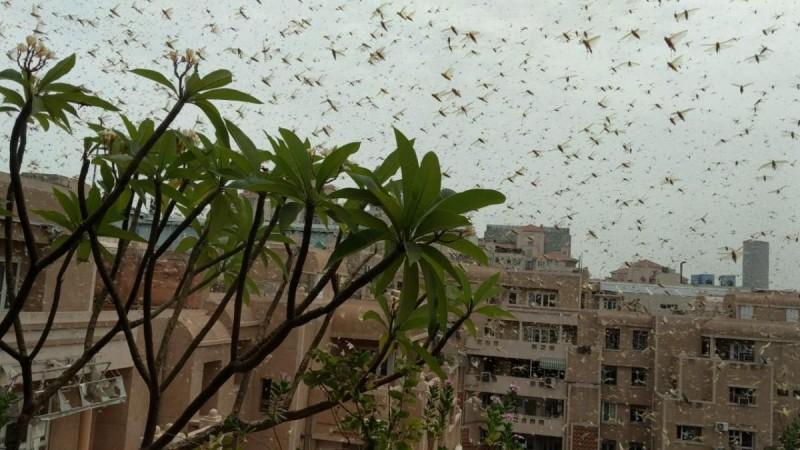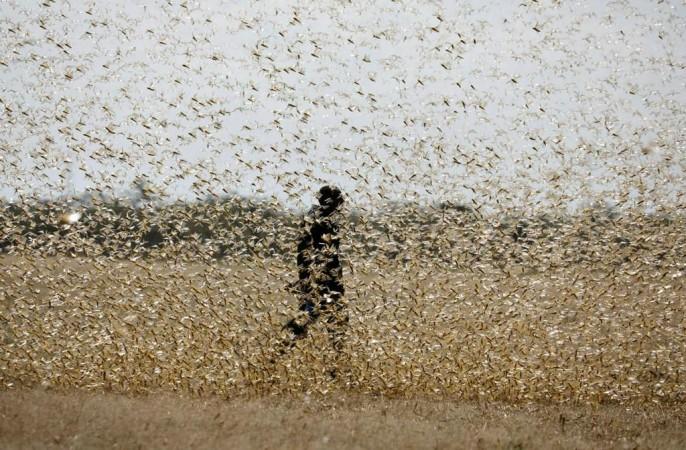2020 has been arguably the worst year many in this generation has seen. We've had more than enough on our plates. Earlier on Saturday morning, it was reported that swarms of locusts had turned up on the outskirts of Delhi at Gurugram, in the Cyber Hub area and in Delhi's Chhatrapur causing the Haryana government to issue a high alert.
With locust attacks occurring in the country and so much else going one, surely there are questions and concerns. In such a situation, being aware and slightly more prepared can't hurt.

Locust attacks in India: The specifics
In the month of April 2020 even as India was in over its head due to the COVID-19 pandemic, locust attacks threatened the northern and central belt of India. The reason why this created uproar for the uninitiated is because a locust attack threatens food reserves and crops.
The high-risk areas in India for a locust attack were Rajasthan, Haryana, Punjab Uttar Pradesh, Delhi, Madhya Pradesh and Maharashtra. The swarm had entered via Pakistan's Sindh Province in April. Even though locusts may sound innocent, they are capable of great destruction.
Another risk is that when the monsoon season approaches locusts breed and lay eggs for two months. The size of a swarm of locusts varies from one square kilometre to several hundred square kilometres.

The particular type of locust India is affected by is the desert locust which affects South Asia, Africa, Arabia and West Asia. They are highly mobile and pose a great risk to a region's food security and livelihoods. According to National Geographic, locusts may travel up to 81 miles per day or more. Their coverage may cause famine and devastation.
Do locusts pose a threat to humans?
The risk that locusts pose is mostly to crops. As thousands of locusts have swarmed to Gurugram, the government has issued a high alert and have deployed measures to contain them and drive them out. The authorities asked residents to keep windows and doors shut and bang utensils to keep the pests away. Farmers were also told to keep their insecticide sprays ready to use.
#HappeningNow Outside our balcony in Gurgaon phase 2. #locustattack pic.twitter.com/ipPp358mat
— Kamala Sripada (@kamalasripada) June 27, 2020
Locusts are crop-eaters so they pose little threat or harm to animals and humans as they don't attack them. Little evidence suggests that they carry diseases. However, large locust swarms can spread allergens that affect those who suffer from allergies. The insects can block the nasal passages of animals which causes respiratory problems.
Still, caution is advised, and we need to be aware because researchers warn that as global warming increases, more dry spells will bring more locust swarms in the future.

















